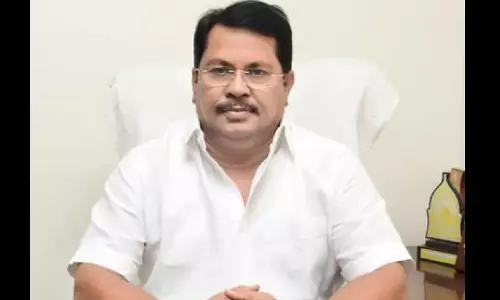China stops NSCN(K) from joining Naga talks
Security sources said it was aimed at dissuading the NSCN(K) from joining the talks with the Government of India.;

Guwahati: In what has been a major area of concern for security agencies in India, China’s proactive intervention has stopped the NSCN(K) from taking part in the ongoing peace talks in Nagaland. Revealing that the Chinese agencies were frequently meeting NSCN(K) leaders at Ruli and Kunming in south China’s Yunnan province, security sources in the Union home ministry told this newspaper they had conclusive intelligence inputs establishing China’s involvement with the Northeast insurgent groups.
Noting that China was regulating the entire decision-making of the United National Liberation Front of West South-East Asia (UNLFW), a joint platform of four Northeast rebel with bases inside Myanmar, the sources said representatives of Chinese agencies were meeting them frequently, often even twice a month.
Saying China had also played key role in the choice of self-styled “Lt Gen” Khango Konak, who had taken over as NSCN(K) chairman after S.S. Khaplang died in June this year, as chairman of the UNLFW, security sources said it was aimed at dissuading the NSCN(K) from joining the talks with the Government of India.
Saying that NSCN(K) was under tremendous pressure from civil society groups in Nagaland to rejoin the peace talks, the security sources said China had been keeping a safe distance from Indian insurgent groups, but of late it had intensified its “undercover” activities in the Northeast. The Northeast insurgent groups that operate from Myanmar have easy access to frontier towns of Yunnan in China, which has become the hub of anti-India activities.
The sources claimed, however, that the NSCN(K) may soon rejoin the peace process given the mounting pressure of civil society, that recently forced six rebel groups of Nagaland to join the ongoing talks seeking a permanent solution to the decades-old problem.
Admitting that NSCN(K)’s new chairman Khango Konak was also opposed to abrogating the ceasefire with the Government of India, the sources said he had often asserted the need to join the peace talks. The NSCN(K) led by S.S. Khaplangm, who passed away on June 6, had unilaterally abrogated the ceasefire in March 2015.
It is significant that India had, in several bilateral discussions, pointed out to China about the Northeast insurgent leaders taking shelter in Yunnan province, but despite assurances by China’s interior ministry, it had failed to take any effective step to drive them out.


